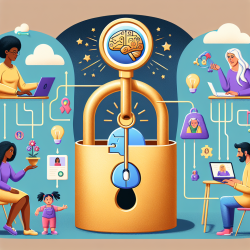Understanding Special Education Policies and Procedures in Louisiana
In Louisiana, the Special Education Program Policies and Procedures Outline serves as a comprehensive guide for schools to develop their Special Education Handbooks. This outline ensures compliance with both federal and state regulations, providing a framework to support students with disabilities effectively. Here, we will explore key components of this outline to help educators and parents navigate the special education landscape in Louisiana.
Child Search/Child Find Activities
The Child Search/Child Find initiative is crucial for identifying students who may require special education services. The responsibilities of the Child Search Coordinator include:
- Ensuring all students are accounted for and evaluated appropriately.
- Maintaining the SER (Special Education Reporting) Database to track student information.
- Following guidelines outlined in Bulletin 1706, which details the Regulations for Implementation of the Children with Exceptionalities Act.
Initial Evaluations and Reevaluations
Initial evaluations and reevaluations are fundamental in determining a student's eligibility for special education services. The School Building Level Committee plays a pivotal role in the screening process, ensuring evaluations are conducted within the timelines specified in Bulletin 1508, The Pupil Appraisal Handbook.
Individualized Education Program (IEP) Plan
The IEP Plan is a cornerstone of special education, tailored to meet each student's unique needs. Key aspects include:
- Developing the IEP using web formats and submitting it to the SER.
- Ensuring parent participation through meeting notices and involvement in IEP meetings.
- Utilizing additional guidance from Bulletin 1530, Louisiana IEP Handbook.
Least Restrictive Environment (LRE)
The LRE principle mandates that students with disabilities should participate in regular education programs to the maximum extent appropriate. This includes:
- Providing a continuum of alternative placements.
- Ensuring participation in nonacademic settings.
Transition Services and Extended School Year Services (ESYS)
Transition services are designed to prepare students for life after school, starting before age 16. ESYS ensures students continue to receive necessary services beyond the traditional school year, maintaining progress and preventing regression.
Procedural Safeguards and Discipline Procedures
Procedural safeguards protect the rights of students and parents, covering areas such as parental consent, examination of records, and due process hearings. Discipline procedures, as outlined in Bulletin 1706, ensure fair treatment of students with disabilities.
Personnel Standards and Services for Gifted or Talented Students
Personnel standards focus on ensuring certified staff are available to meet the needs of students with disabilities. Additionally, services for gifted or talented students are guided by specific procedures and assurances to nurture their unique abilities.
For more information, please follow this link.










